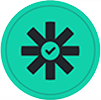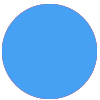Hey there, I have what may be a simple question, but it’s been challenging to self-service an answer.
Scenario:
I’m creating our first Zapier integration. For now, I’m focusing on triggers, which correlate to several webhook types that our platform offers. Each webhook type gets its own specific trigger. I’m also using the visual/web builder as I’m not actually a developer myself.
Our Subscribe request:
{
"data":{
"attributes":{
"subscriptions":[
"course_completed_events" //corresponds to selected trigger
],
"url": bundle.targetUrl
}
}
}
Our system returns the following:
{
"data": {
"type": "webhook_endpoints",
"id": "3c0cd54b-e116-4dff-ad40-18958e59841b",
"attributes": {
"url": "URL here",
"subscriptions": [
"course_completed_events" //corresponds to selected trigger
]
}
}
}
The Unsubscribe request should look like this:
DELETE {baseURL}/webhook_endpoints/{id}
Where id is equal to the id returned in the Subscribe response (so in this example, it should be 3c0cd54b-e116-4dff-ad40-18958e59841b
How do I get at that id so that my Unsubscribe functionality works?
I’ve read about using bundle.subscribeData, but logging bundle.subscribeData to the console always returns back undefined.
Do I have to explicitly store the ID? Can I do that?
Any advice? Am I thinking about this the right way?



